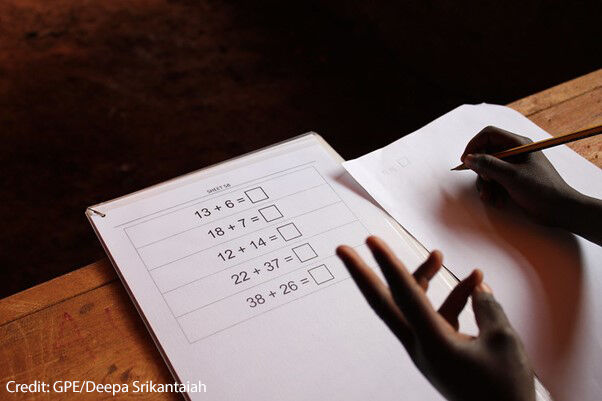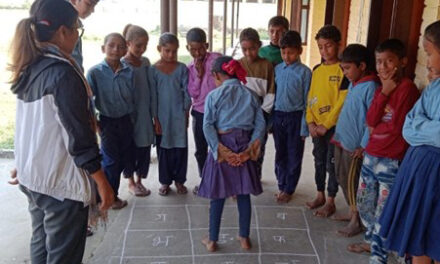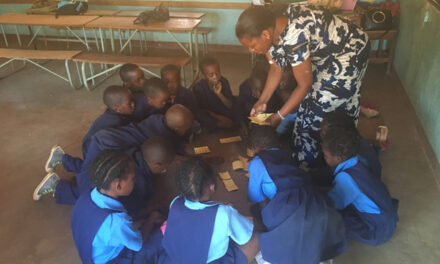This article is written by Akanksha Bapna, Senior Research Fellow, ODI; Christina Myers, Senior Research officer, ODI; and Namrata Sharma, MSc Candidate, UCL Institute of Education.
Background
Kenya has a high mobile phone penetration rate but low internet connectivity. In this context, we test an offline Android-based mathematics learning platform called Oppia, that has the potential to provide continuity in learning, particularly in the post-pandemic era in the Kenyan context. Despite there being a large body of research on EdTech interventions, there is complexity in understanding how best technology-supported personalised learning (TSPL) works and under which conditions and contexts.
We use a randomised design to test the causal impact of facilitation, peer learning, and access to devices on mathematics outcomes (the results will be published separately) in an informal settlement in Nairobi, Kenya. In a previous blog published on the design-based research phase of the study, we outlined the importance of digital literacy, facilitation and peer learning in mathematics learning on a TSPL platform. This blog outlines the importance of language comprehension as yet another mediator that might impact mathematics outcomes.
Reading comprehension and mathematics learning outcomes
There is emerging evidence on how reading comprehension is linked to mathematics performance, although the research in this area is sparse. Linguistic factors that may affect mathematics performance include phonological processing, language comprehension, reading comprehension, and problem translation and may even be crucial for mathematics problem-solving.
The relationship between language and mathematics proficiency appears to be complex as language proficiency is known to interact with general problem-solving. In one study, spatial language comprehension has been shown to mediate the association between spatial skills and mathematics performance for girls . Language proficiency and mathematics proficiency thus appear to be linked, such that lower language proficiency may translate into poorer mathematics performance.
Emergent links between comprehension and mathematics scores
Storytelling is a central aspect of the Oppia mathematics lessons, and one of our hypotheses was that students would demonstrate an improvement in language scores as a result of increased reading during the Oppia lessons. The relationship between language proficiency and mathematics outcomes is complex and the literature points towards the role of language comprehension in mathematics outcomes.
Firstly, we find, unsurprisingly, that baseline Swahili scores are a strong predictor of endline Swahili scores, i.e. higher Swahili scores at baseline predict higher Swahili scores at endline. This is not unexpected.
Secondly, a moderate Pearson correlation coefficient (0.28, p < 0.05) was observed between baseline Swahili and baseline mathematics scores. This indicates that there is some association between language comprehension and student mathematics scores at baseline – or at the start of the intervention.
Thirdly, we find that baseline Swahili scores are strong predictors of endline mathematics scores. This suggests that the link between language comprehension and mathematics learning is a factor that merits further exploration.
Lastly, we find no statistically significant difference between the Swahili scores between baseline and endline, indicating that there is no advancement in Swahili language comprehension. This might be because, although the application was available in Swahili and English, the students mostly chose to use the English language setting. In addition, while there is endogeneity (circularity) in the association between these outcomes, and careful analysis needs to be conducted to understand the impact of one on the other, we also find that endline mathematics scores are also correlated with endline Swahili scores.
While this study does not make any causal or directional claims in highlighting the relationship between language comprehension and mathematics outcomes, it is important to note that there is some kind of complex relationship between the two skills. Further systematic research will be needed to evaluate content types and the specific linguistic skills required for mathematics learning and the relationship between mathematics outcomes and language skills.





